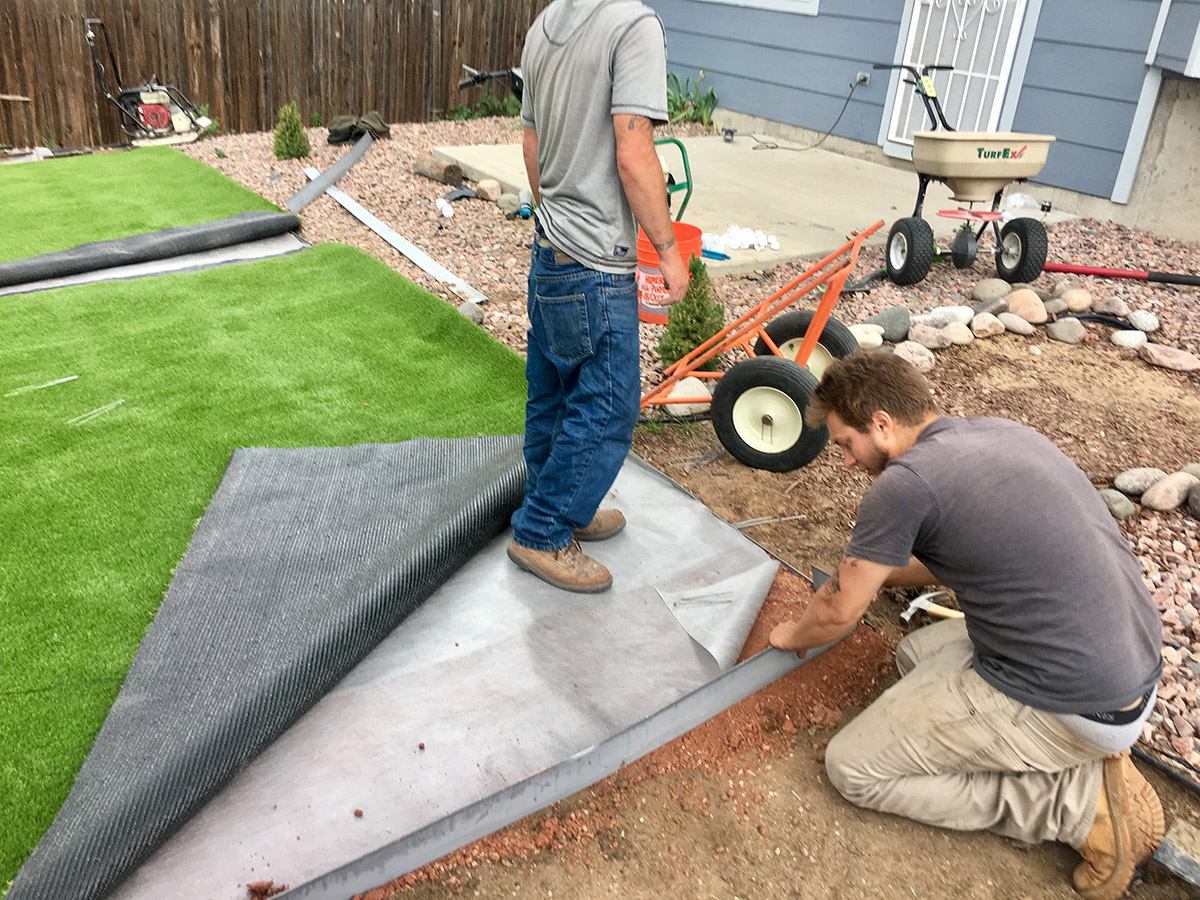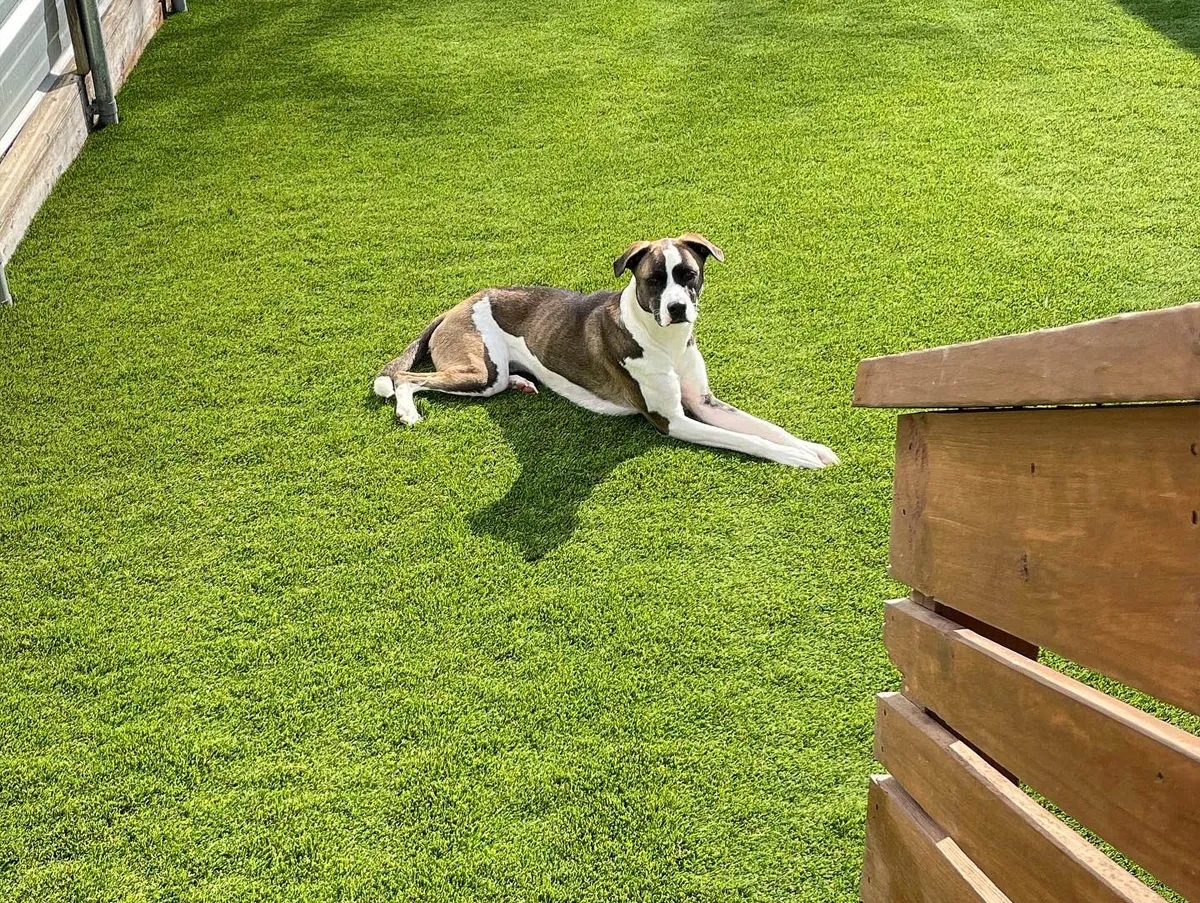Leading Phoenix Turf Companies Delivering Premium Synthetic Grass Solutions
Leading Phoenix Turf Companies Delivering Premium Synthetic Grass Solutions
Blog Article
See Why Homeowners Prefer Synthetic Grass for Lasting Landscape Design Practices
As home owners significantly prioritize sustainability in landscape design, fabricated grass has emerged as a compelling alternative to typical yard. Its capability to conserve water, decrease upkeep efforts, and decrease environmental influence placements it as a functional selection for those seeking eco-friendly options. Moreover, the aesthetic appeal and convenience of synthetic grass satisfy diverse style choices. The implications of this shift extend past mere convenience and looks, motivating a better examination of how these options influence more comprehensive ecological results. What stays to be discovered is the complete scope of advantages that synthetic grass can provide to homeowners and the environment alike.
Water Preservation Conveniences
One of the most significant advantages of synthetic lawn is its function in water preservation. In contrast, artificial lawn eliminates this need entirely, as it does not call for watering.
Moreover, the installment of synthetic grass can add to a much more sustainable landscape. Property owners can dramatically reduce their water expenses, allowing for reallocation of resources to various other ecological initiatives or family uses. Furthermore, synthetic grass is made to stand up to different climatic conditions without the need for supplemental watering, making it a suitable selection for areas facing water shortage.
The ecological advantages extend beyond instant water savings. By decreasing water intake, synthetic grass helps to mitigate the impacts of climate adjustment, protecting essential ecological communities that are endangered by extreme water removal. As sustainable landscape design practices get grip, synthetic grass becomes a responsible choice for home owners looking for to produce environmentally friendly outdoor areas.
Lowered Upkeep Initiatives
Synthetic grass dramatically reduces upkeep efforts contrasted to traditional turf lawns. With man-made yard, property owners can get rid of the time-consuming jobs connected with natural landscape design, such as mowing, fertilizing, and weeding. This not just saves important time but also decreases physical labor, making grass care obtainable for individuals of every ages.
One of the most significant benefits is the lack of routine mowing. Standard lawns require regular cutting to keep an aesthetically pleasing height, whereas fabricated lawn stays constantly lush without the need for reducing. In addition, property owners no longer need to apply chemicals or plant foods, which are frequently called for to maintain all-natural turf healthy. This change not only lightens the work but likewise advertises a neater, more uniform appearance year-round.
In addition, synthetic grass is resistant and resilient, calling for marginal maintenance beyond periodic brushing and rinsing to remove debris. This simplicity of upkeep enables house owners to appreciate their exterior rooms without the consistent worry of upkeep, supplying more time for recreation and household activities. Inevitably, the lowered maintenance initiatives connected with synthetic grass make it an attractive choice for those looking for a low-maintenance, visually appealing landscape.
Environmental Influence Decrease
There is an expanding recognition of the environmental benefits related to synthetic grass, especially in terms of water conservation and reduced chemical use. Standard lawns call for considerable quantities of water, specifically in drought-prone areas, resulting in enhanced strain on regional water sources. In comparison, artificial grass eliminates the need for irrigation, considerably decreasing water intake and promoting sustainability.
Additionally, standard grass upkeep frequently includes the application of herbicides, chemicals, and plant foods, which can add to soil and water pollution. Artificial lawn minimizes this ecological risk by needing very little maintenance and basically eliminating the demand for unsafe chemicals. This not just boosts dirt health and wellness yet also shields regional communities from poisonous drainage.
In addition, the production of all-natural yard lawns typically involves making use of fossil gas helpful hints for cutting and landscaping tools, more contributing to greenhouse gas discharges. By choosing man-made turf, home owners can substantially decrease their carbon footprint related to grass treatment tasks.
Visual Charm and Adaptability
Along with its ecological benefits, synthetic lawn uses considerable visual allure and convenience for landscaping. Home owners can attain a lush, eco-friendly look year-round, removing the seasonal variations commonly connected with natural yard. This consistent visual not just improves the visual allure of a home yet also adds to a properly maintained and sleek look.
Additionally, synthetic grass is readily available in a range of structures, colors, and styles, enabling modification to match individual choices and layout styles - Phoenix turf companies. Whether used in household gardens, industrial areas, or recreational locations, it can seamlessly incorporate into varied landscape design designs, from modern minimalist to lavish tropical setups
The versatility of synthetic grass expands beyond plain appearance; it can be installed in various locations, including roofs, outdoor patios, and also indoor rooms, developing opportunities for special landscaping solutions. Furthermore, it appropriates for a range of tasks, from children's backyard to pet-friendly settings, offering functionality without compromising design.
Eventually, the visual charm and convenience of synthetic grass make it an attractive option for homeowners looking for sustainable landscape design solutions that do not give up beauty for ecological duty.

Long-Term Cost Cost Savings
One of the most engaging advantages of synthetic lawn is its potential for long-lasting expense financial savings. Unlike all-natural turf, which calls for regular upkeep-- consisting of mowing, watering, feeding, and bug control-- fabricated turf substantially minimizes these ongoing costs.
Additionally, synthetic grass has a life expectancy of 15 to 25 years, depending on its top quality and use. This longevity reduces substitute expenses, making it a more economical selection in the long run. The first financial investment in man-made grass can usually be recovered through the savings accrued over time.
While the ahead of time price might appear higher compared to turf installment, the advancing cost savings from reduced maintenance and water use often surpass these preliminary expenditures. Ultimately, the adoption of synthetic grass not only advertises a lasting landscape design service yet likewise uses homeowners a monetarily smart alternative that lines up with lasting budgeting goals.
Verdict
Fabricated grass emerges as a compelling alternative for lasting landscaping, providing significant advantages in water preservation, minimized maintenance efforts, and decreased ecological influence. As neighborhoods progressively prioritize ecologically Continue friendly practices, try this out the fostering of fabricated grass represents a progressive action toward accomplishing sustainable and resilient landscapes.
Additionally, fabricated lawn is developed to endure numerous climatic conditions without the demand for extra watering, making it an optimal choice for areas dealing with water scarcity. (Artificial turf companies phoenix)

Synthetic turf arises as an engaging option for lasting landscape design, providing significant benefits in water conservation, reduced upkeep efforts, and diminished ecological effect.
Report this page